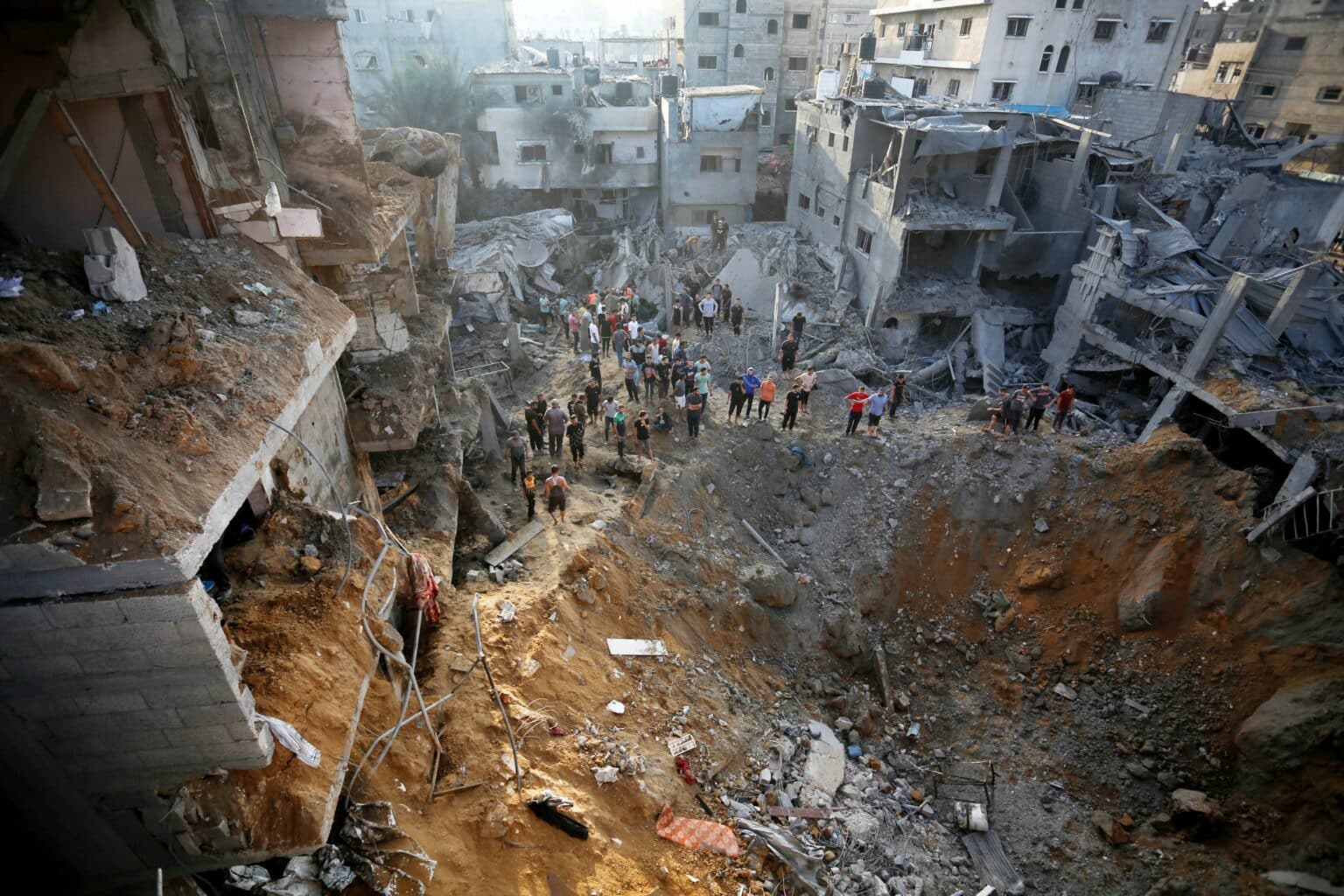Israeli Prime Minister Benjamin Netanyahu said late Monday that his country would take “overall security responsibility” in Gaza indefinitely after its war with Hamas in the territory has ended.
Netanyahu made the remarks during an interview with ABC News. Israel’s Prime Minister also said there would be no cease fire until the more-than 240 hostages that Hamas is holding were freed, though he did concede an openness to “little pauses,” referring to the humanitarian pauses that President Biden and his top Administration officials have been pressing for in order to get more aid to Gazan civilians caught in the crossfire.
Biden and Netanyahu discussed the issue of pauses as recently as Monday, though no apparent agreement was reached. National Security Council spokesperson John Kirby characterized discussions regarding the issue to be at the “beginning of this conversation.”
According to reports, some 70% of Gaza’s 2.3 million people have fled their homes as entire city blocks have been reduced to rubble.
The Hamas-run Health Ministry of the Gaza Strip said Monday that the Palestinian death toll had surpassed 10,000, including 4,100 kids, though the ministry does not distinguish between civilians and combatants, and Israel’s military says it has killed thousands of Hamas fighters in the territory.
About 1,400 people in Israel have also been killed, most during Hamas’ massive October 7 terrorist attack.
During his ABC News inverview, Netanyahu said Gaza would be governed by “those who don’t want to continue the way of Hamas.”
“I think Israel will, for an indefinite period, will have the overall security responsibility because we’ve seen what happens when we don’t have it. When we don’t have that security responsibility, what we have is the eruption of Hamas terror on a scale that we couldn’t imagine,” Netanyahu said.
For weeks, analysts have been weighing what a post-Hamas Gaza would look like, though senior Israeli officials last month said that it’s “too early” to contemplate the details while its government is focused on “fighting and winning the war.”
The danger lies in allowing a power vacuum into the Palestinian territory, which could unleash a wave of instability that might potentially be filled by the return of Hamas or even something worse than that terrorist organization.
However, the Palestinian Authority has an abysmal track record in Gaza where it ruled briefly from 2005 to 2007—before being ousted by Hamas.
Some U.S. and Israeli officials have been floating the idea of a trusteeship to govern Gaza, with the United Nations serving as a steward for humanitarian relief. Peace-keeping forces would oversee reconstruction and elections.
But this idea has fierce critics, like Palestinian-American historian Rashid Khalidi who called it “a fantasy.”
Late last month, Dennis Ross, a former Mideast peace negotiator who served in multiple U.S. Administrations, said the point is to start thinking about long-term solutions for Gaza as soon as possible.
“There has to be a focus on what is the political result of this,” Ross said, referring to Israel’s endgame.
PHOTO: Gaza destruction amid Israel-Hamas war
Read more exclusive news from Political IQ.


